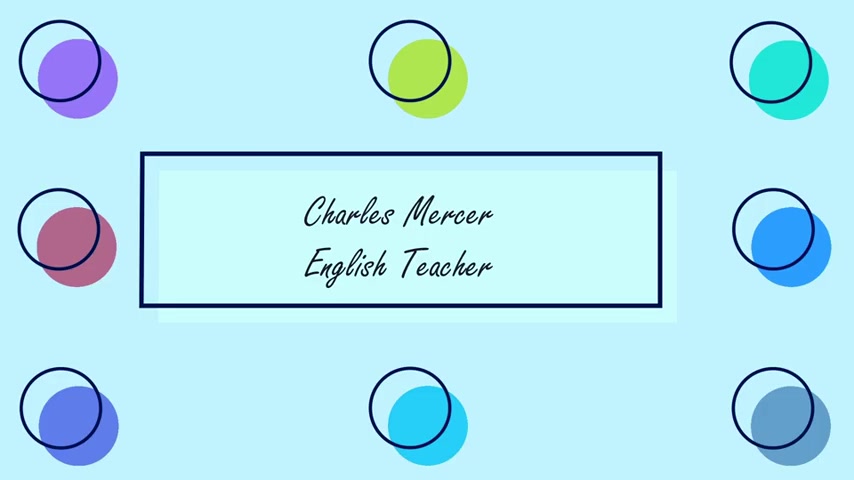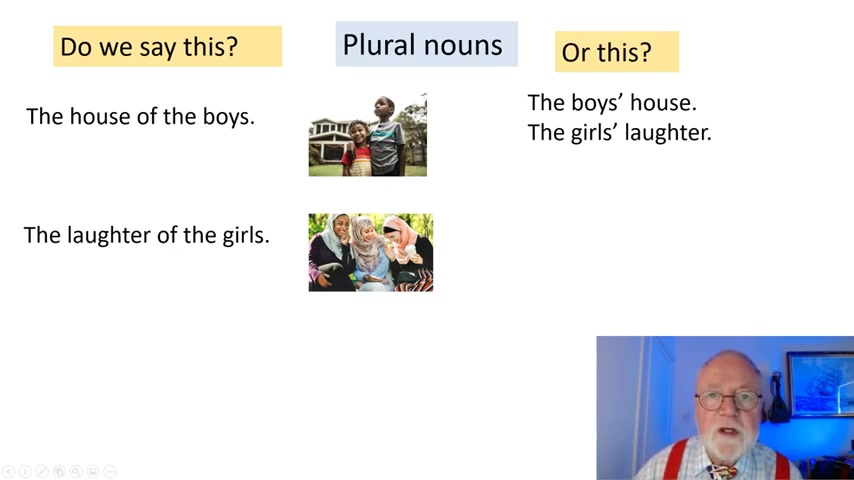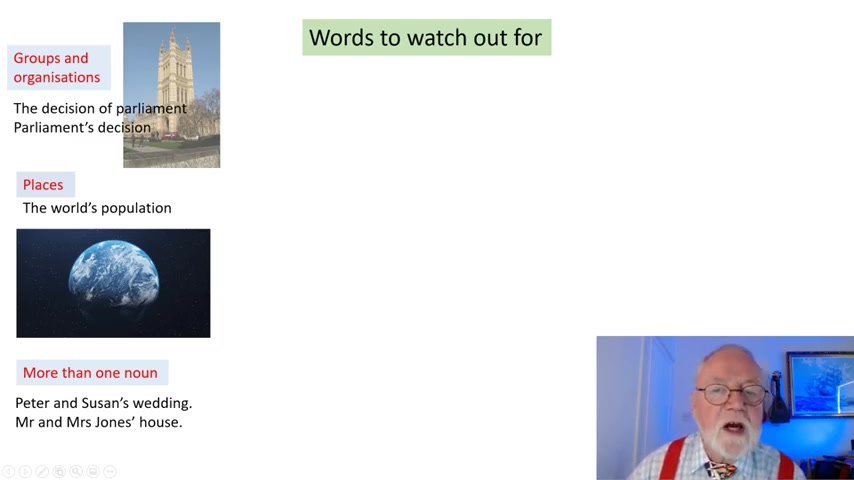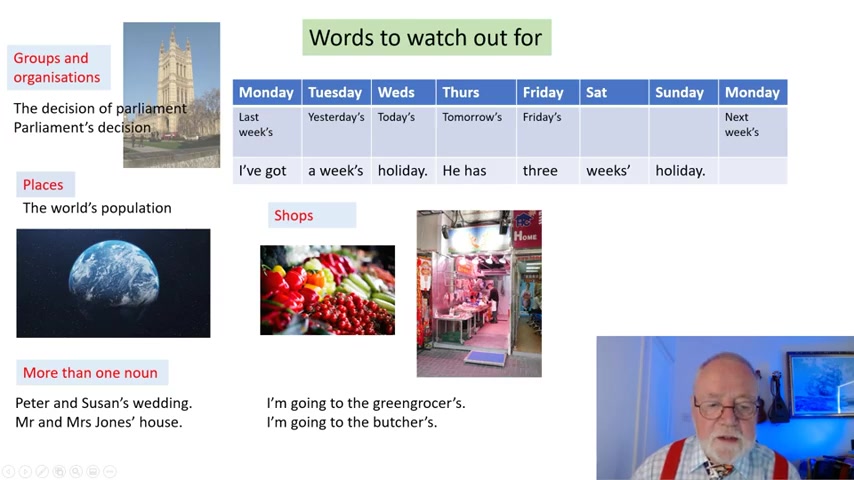
https://www.youtube.com/watch?v=Qb9zw6M_jTM
The apostrophe. The possessive case, or Saxon genitive, clearly explained.

Welcome to my study today .
We're going to have a look at the apostrophe that shows us in our written work that something belongs to a noun .
Grammar professors call it the Saxon genitive .
But I think these days you hear more possessive case , I'll give you some exercises to practice it and I'll tell you an English joke to see that you've really understood how the apostrophe works .
At the end of the video , I'll give you some synonyms which will help you expand your vocabulary for your written work in exams .
First , we'll look at singular nouns .

Do we say the hat of the man is holding the dog of my friend was called Fido .
The tail of the horse is long or this ?
Well , in English , we really express it this way .
The man's hat is white .
My friend's dog was called Fido .
The horse's tail is long .
We use the apostrophe S to show possession or association mainly though for humans or animals , not so much for inanimate things .
And I'll explain that a little more later for plural lands , it's slightly different .
Do we say the house of the boys , the laughter of the girls or do we say this ?

The boy's house , the girl's laughter .
You notice the apostrophe follows the s but when words are plural already like women , men and Children , we simply use an apostrophe .
Women's so we could say the women's dresses , the men's race , the children's joke .
But there are some words that you must watch out for with groups or organizations like parliament .
We can express the possessive in two ways .
We can say the decision of parliament or parliament's decision with places .
We can do the same thing , the world's population or the population of the world .


But where we have more than one noun , we usually only put the apostrophe after the second one like this .
Peter and Susan's wedding .
Mr and Mrs Jones's house .
Now days of the week are important and most English people , I'm afraid get this wrong .
If I said I've got a week's holiday , you notice we have the apostrophe s after the word week , it's a single week and it's possessive .
He has three weeks .
Holiday weeks is plural .
So the apostrophe follows the s be careful with days of the week .

If I'm going to a shop in England , I tend to say I'm going to the greengrocer's notice the apostrophe at the end , not the greengrocer's shop , but I'm going to the greengrocer or I'm going to the butcher's here are some exercises for you to practice .
Notice that there are some special cases which I've shown like classical names and sometimes we can't make up our minds which one to use .
You may see both forms .
But if you come to London and you travel on the underground , you may see the station Saint James's Park , which you notice is spelt with an apostrophe .
S look at number three in exercise .
A , you notice it hasn't changed the leg of the table .
A table is inanimate so we tend not to use a possessive .
We don't say the table's leg .
That would sound rather strange to me .

In English , there are some exceptions , but you'll just have to watch out for those .
And now to test if you really understood , I'm going to give you the English joke .
A grammar professor goes to the market to buy some fruit .
He notices the spelling on the stall and he says to the owner , excellent spelling sir .
But carrots really .
And the owner says to the professor actually , Professor , I'm Mister Carrot .
If you understood that , perhaps you could explain it in the comments below .
Here are our synonyms for the verb to permit , allow , make possible , give permission , grant and accord .


Oh , goodness , this is at the time when I'm sorry , I really must go because I'm going to the dentist this afternoon .
Next time we'll look at adjectives of quality .
So I say goodbye .
Thanks for watching , please .
Like below .
But
Are you looking for a way to reach a wider audience and get more views on your videos?
Our innovative video to text transcribing service can help you do just that.
We provide accurate transcriptions of your videos along with visual content that will help you attract new viewers and keep them engaged. Plus, our data analytics and ad campaign tools can help you monetize your content and maximize your revenue.
Let's partner up and take your video content to the next level!
Contact us today to learn more.